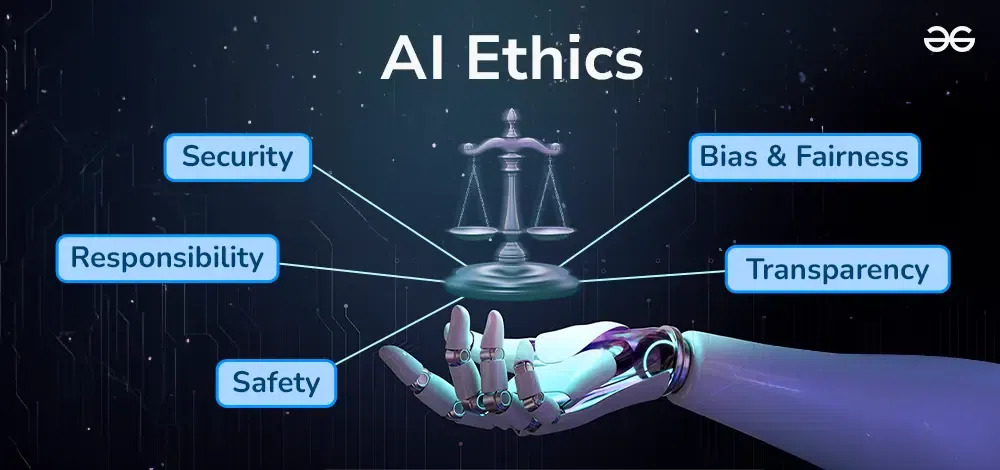Artificial Intelligence (AI) is rapidly transforming industries, decision-making processes, and everyday life. As AI systems become more integrated into society, understanding the ethical implications of their use is essential for responsible development and deployment.
What is the Role of Ethics in AI?
Ethics in AI refers to the moral principles and guidelines that govern how AI technologies are designed, developed, and used. It ensures that AI systems respect human rights, promote fairness, and do not cause harm.
How Ethics Shapes AI Development
Ethical frameworks help developers and organizations create AI solutions that are transparent, accountable, and socially beneficial. Ethics encourages thoughtful decision-making throughout the AI lifecycle, from data collection to algorithm design and system deployment.
Key Ethical Principles in AI
Fairness: AI should not discriminate based on race, gender, or other personal characteristics. Ensuring fairness involves minimizing bias in datasets and algorithms.
Transparency: AI systems should be explainable, meaning users and stakeholders can understand how decisions are made.
Privacy: Protecting user data is a core ethical requirement. AI systems must comply with data protection laws and handle personal information responsibly.
Accountability: Clear responsibility should be assigned for AI-driven decisions, especially when they lead to significant outcomes.
Safety: AI technologies must be developed with safeguards to prevent unintended harm or misuse.
Benefits of Ethical AI
Ethical AI builds trust with users, promotes fairness, and helps organizations comply with regulations. It can also lead to more sustainable and socially acceptable AI solutions that benefit society as a whole.
Challenges to Consider
Balancing innovation with ethical safeguards can be complex. Addressing issues like bias, transparency, and accountability requires ongoing collaboration between technologists, policymakers, and ethicists.
Conclusion
The role of ethics in AI is crucial for guiding its responsible use and long-term success. By embedding ethical principles into AI systems and combining them with human judgment, organizations can ensure that AI serves humanity in a fair, transparent, and trustworthy way.







Leave feedback about this